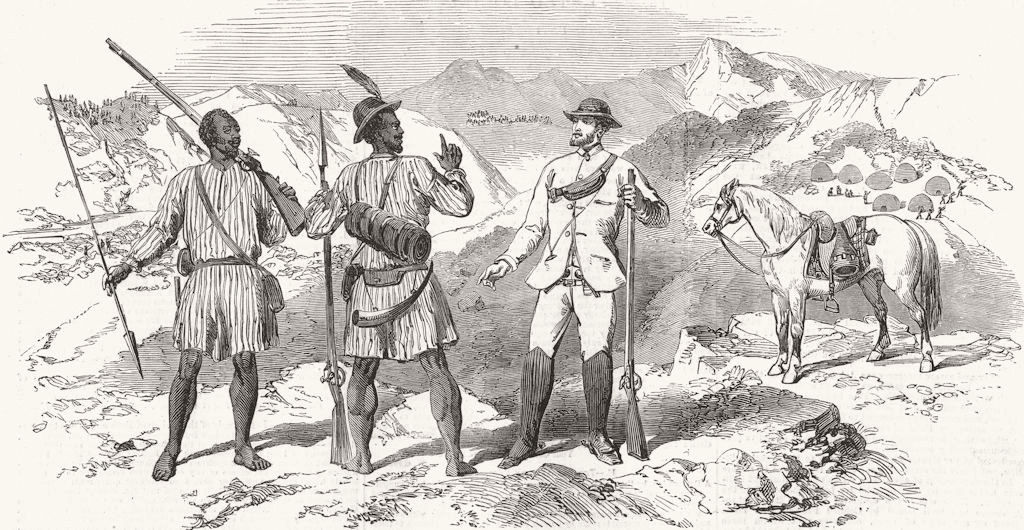The Cape Frontier Wars, spanning from 1779 to 1879, stand as a testament to the tumultuous intersection of European colonial expansion and the rich tapestry of indigenous cultures in Southern Africa. This protracted series of conflicts, often overlooked in global historical narratives, unfolded against the backdrop of imperial ambitions, cultural clashes, and struggles for territorial dominance. In this comprehensive exploration, we delve into the intricate details of the Cape Frontier Wars, examining the key players, evolving dynamics, and enduring legacies that shaped the region.
Origins and Catalysts
The roots of the Cape Frontier Wars can be traced back to the late 18th century when European colonial powers, notably the British and the Dutch, sought to expand their influence in the southernmost tip of Africa. The indigenous Xhosa people, who had long inhabited the region, found themselves caught in the crossfire of competing imperial interests. The contested territories, marked by fertile lands and valuable resources, became the epicenter of a struggle that would span a century.
European Colonization and Indigenous Resistance
As European settlers established the Cape Colony, tensions between the colonizers and the Xhosa communities escalated. The Europeans sought to expand their agricultural and grazing lands, encroaching on territories vital to the traditional way of life for the Xhosa. The resultant clashes, marked by both guerrilla warfare and set-piece battles, defined the Cape Frontier Wars.
The Xhosa, under leaders like Maqoma and Hintsa, exhibited remarkable resilience in the face of European expansion. Their tactics, deeply rooted in the landscape and their understanding of guerilla warfare, posed significant challenges to the technologically superior but unfamiliar European forces.
British-Dutch Rivalry and Changing Alliances
The Cape Frontier Wars were not only a clash between colonizers and indigenous peoples but also a reflection of the broader imperial rivalries of the time. The British and the Dutch, historical adversaries in Europe, found themselves vying for control over key strategic regions in Southern Africa. This geopolitical backdrop added layers of complexity to the conflicts, as alliances shifted and realigned in response to changing global dynamics.
Impact on Indigenous Societies
The impact of the Cape Frontier Wars on indigenous societies was profound. Displacement, loss of land, and disruption of traditional ways of life left lasting scars on the Xhosa communities. Moreover, the introduction of European diseases had devastating consequences, further weakening the resilience of the indigenous populations.
However, the wars also forged a sense of unity among the Xhosa people as they faced common challenges. The struggles against European expansion contributed to the development of a collective identity and a determination to preserve their cultural heritage.
Enduring Legacy and Historical Reckoning
The Cape Frontier Wars concluded in 1879, but their legacy endured. The scars of the conflicts shaped the socio-political landscape of Southern Africa, influencing subsequent events such as the colonization of Rhodesia and the apartheid era in South Africa. The echoes of the clashes reverberate in the ongoing efforts for land restitution and reconciliation in the post-apartheid era.
In recent years, there has been a growing recognition of the importance of acknowledging and understanding the Cape Frontier Wars in the broader context of Southern African history. Efforts to preserve and commemorate the sites of significant battles, along with initiatives to incorporate diverse historical perspectives, contribute to a more nuanced understanding of the complex interactions between European colonizers and indigenous peoples.
In conclusion
The Cape Frontier Wars were a crucible of conflict, where empires clashed, alliances shifted, and indigenous cultures endured. The comprehensive history of these wars reveals not only the struggles for territory but also the resilience and adaptability of the Xhosa people. The legacy of the Cape Frontier Wars continues to shape the narrative of Southern Africa, underscoring the importance of recognizing and reckoning with the complex historical forces that have shaped the region.
